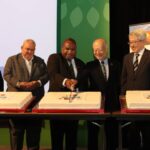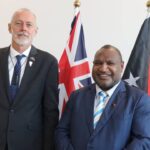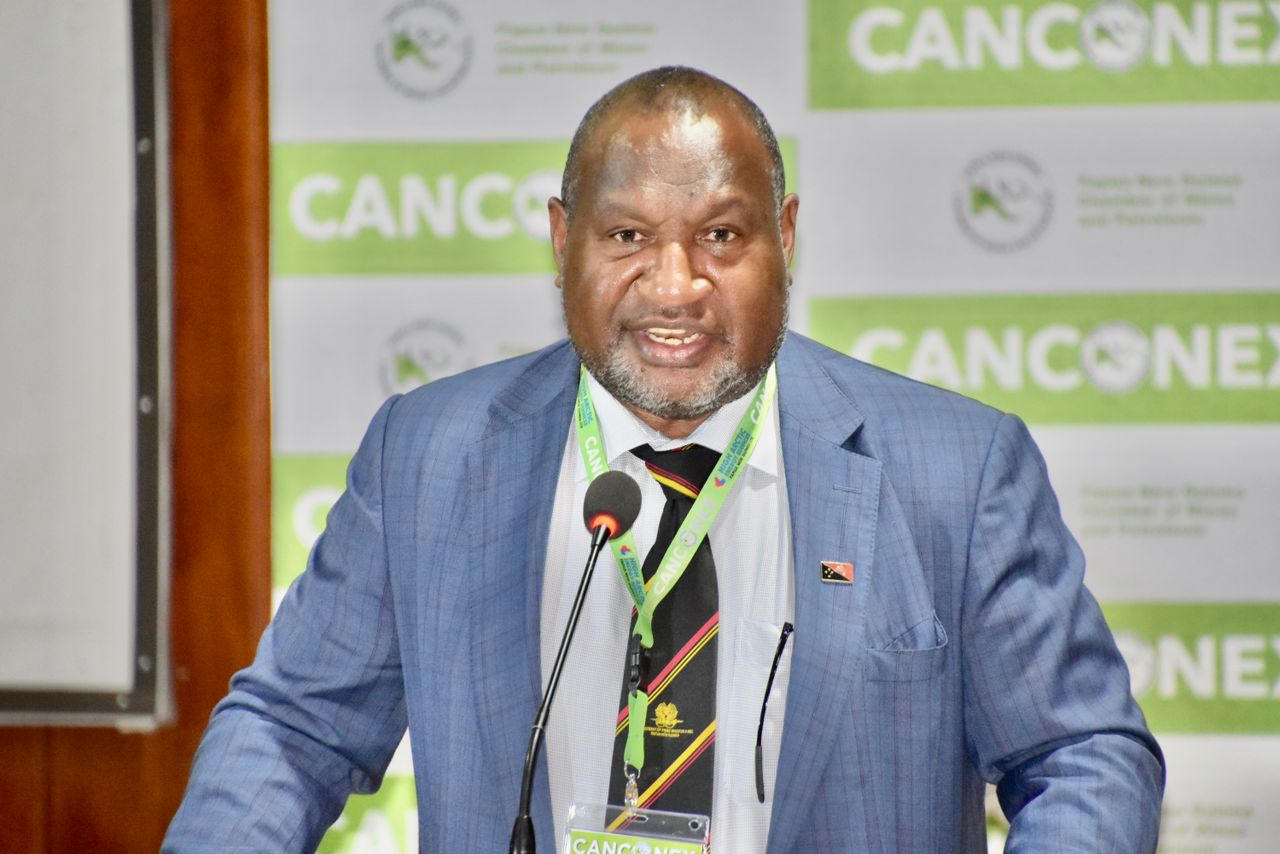In a resounding call to action today, Prime Minister Hon. James Marape underscored the paramount significance of local involvement across all phases of resource project development in Papua New Guinea. Speaking passionately at the PNG Community Affairs and National Content Expo hosted at the University of Technology in Lae, Prime Minister Marape also emphasised the vital role of downstream processing of resources onshore.
With over 800 participants hailing from diverse regions of the country, the event, organised by the PNG Chamber of Mines and Petroleum, marks a turning point in shaping the nation’s resource landscape.
Prime Minister Marape’s address resonated with a message of opportunity and inclusion, as he stated, “As we stand at the threshold of an exhilarating major resource boom spanning from 2024 to 2038, it is our collective responsibility to ensure that our local communities are active participants in this transformative journey.”
Highlighting the government’s commitment to fostering grassroots entrepreneurship, Prime Minister Marape revealed the allocation of business development grants aimed at empowering individuals in resource-rich areas to establish spinoff enterprises.
Recalling the evolution since the Bougainville mine era, he underlined the profound transformation in people’s education levels and expectations from resource projects in their locales. “Expectations have evolved, citizens are more informed, and possess a profound understanding of their rights,” he asserted.
The cornerstone of Prime Minister Marape’s vision rests upon comprehensive local engagement throughout all project stages, encapsulated by the notion of ‘local content’. “Local involvement is not confined to specific project phases; it is a continuous cycle spanning exploration, construction, and operation. This conversation of ‘local content’ resonates with the essence of our nation’s progress,” he emphasised.
Cognisant of the broader ramifications, Prime Minister Marape underscored the harmony that ensues when all stakeholders share the rewards equitably. “When we facilitate true local participation, it cultivates contentment within our communities, augments our national development, and fosters an environment conducive to investors’ success.”
Prime Minister Marape, addressing the future implications, firmly stated, “Failure to achieve this harmony will necessitate intervention and enforcement by authorities five to ten years from now as a consequence. Our aspiration is to witness resource-rich communities thriving autonomously within a decade, steering thriving businesses.”
While acknowledging the presence of global mining and oil conglomerates like Newmont, Barrick, ExxonMobil, and Total, Prime Minister Marape urged their unwavering commitment to local content integration. “Our policy mandates a substantial 60-65 percent local content across all major resource projects. It’s essential to distinguish that local content doesn’t jeopardise investor returns; it enhances the value that permeates our nation.”
In closing, Prime Minister Marape encapsulated the essence of the transformational vision, “Our trajectory hinges on harnessing our resources judiciously, propelling our communities forward. We stride toward a future where Papua New Guinea stands tall as a beacon of sustainable resource development, anchored in shared prosperity and holistic growth.”






